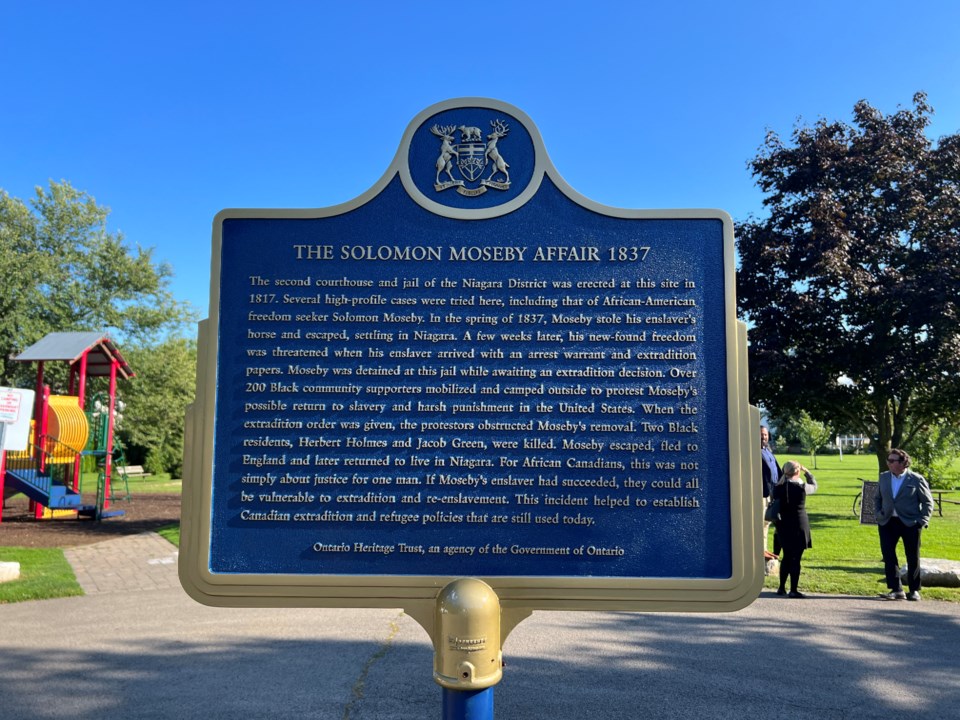The Niagara-on-the-Lake Local received the following letter to the editor from reader Shawna Butts.
In response to James Culic’s article: "Niagara’s long, complicated history with plaques, including those in NOTL."
As we continue to study history, we have come to learn that our words can have lasting power. Prejudice, discrimination, and marginalization of our past are still embedded in the language that we use today.
In order to have language that is inclusive and reflective of our society today, we need to move away from these outdated terms, and that includes the terms that are on our plaques.
In terms of the Solomon Moseby plaque that was recently updated more than the word “slave” was changed. The history was updated to include more information on this incredibly unique piece of history not only in our town but in the history of Canada’s extradition laws. This was certainly lacking in the plaque's previous description.
Outdated terms like “master” and “negroes” were also replaced on the plaque. These terms were not replaced to put an upbeat “sunny spin” on history. Using the term Freedom Seeker over “fugitive”, “escapee”, or even “escaped slave” is preferred as these latter constructs were used by enslavers or “slave catchers” to describe those who sought freedom in Upper Canada.
The term “Freedom Seeker” demonstrates what enslaved people sought rather than reducing African Americans to lawbreakers who deserved punishment. The update to the plaque also did more than “bleach clean the stains of our historical mistakes”. It did quite the opposite… it set the record straight.
Moseby’s story was quite overshadowed by the site's other colonial history. So, the Ontario Heritage Trust revisited the plaque and replaced it with text that focused on the real story of Solomon Moseby in a way that is equitable and honest to the historical significance of the property.
James, even if the changes in the language do not make sense to you, it makes sense to the people it affects the most and that should be enough for you to accept the wording changes to plaques.
A simple internet search would have led you to find out why updated language is important.
Even if Disney isn’t updating their content to reflect changes in language and perceptions, why can’t we be better than Disney when it comes to our plaquing programs? Why does it make sense to you to update the title of the “Negro Burial Ground” plaque, but not update the harmful, discriminatory language on the others? You can’t have it both ways.
By changing these words, we are actually paying attention to history and recognizing how historical language has influenced people's perceptions in the present. We’re not smoothing over the rough edges. We are simply choosing not to use terms that are offensive.
In terms of the Bertie Hall plaque, I cannot speak for Niagara Parks and their decision to omit the history of its involvement in prohibition, but they certainly didn’t whitewash history. They didn’t omit important, factual BIPOC historical narratives from the history of the site, because as you have stated, it was all rumour.
The great thing about plaques is that they can always be rewritten as new narratives and history come to light.
We just have to recognize that the way we present history, and the words that we use, can have lasting effects. And that we need to include the voices of people represented in history so that we can be inclusive in our storytelling.
Shawna Butts



